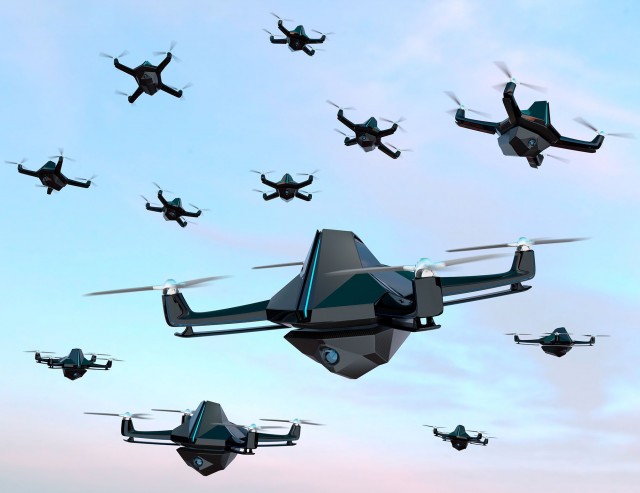
Defense Department is seeking technology that enables unmanned systems and drones to adapt to real world circumstances on the fly
The Defense Advanced Research Projects Agency will hold a proposers’ day for a project to develop machine learning-based technologies that enable unmanned ground vehicles, ships, drone swarms, and robotic systems to respond to events not predicted at the time the systems were designed.
Learning Introspective Control (LINC) technologies will update control laws as required to maintain stability in real time while providing guidance and situational awareness to the operator, whether that operator is human or an autonomous controller, according to the announcement.
This Proposers’ Day will be held August 26, 2021 from 9 am to 2 pm (ET)
The hybrid event will be held at both the DARPA Conference Center in Arlington, Va., and as a Zoom. In-person attendance is limited to 50 participants, and virtual attendance is limited to 200 participants.
The registration deadline is August 23, 2021 or when capacity is reached.
The registration website is https://www.schafertmd.com/darpa/i2o/LINC/pd/
Currently, control design aims to model the range of operating environments which are anticipated at design time. When encountering a physical attack, unforeseen conditions, or unanticipated use that places the system outside the design envelope, the system can fail.
Custom-tailored aftermarket remedies are not commonly available and require a skilled technician to install, according to DARPA. Modifications to existing systems through procurement channels can take months or years. DoD systems are particularly long-lived, so ongoing adaptation would permit continual modification as missions and theaters change, providing a strategic advantage over an adversary.
LINC will develop machine introspection and learning technologies that can characterize a damaged or modified military platform from its behavior, and then update the control law to maintain stability and control. A platform equipped with LINC technology will continually compare the real-time behavior of the platform, as measured by on-board sensors, with a learned model of the plant, determine whether the observed behavior of the platform differs from that model in ways that might compromise stability and control, and implement an updated control law when required.
To register for the event view the DARPA post HERE.